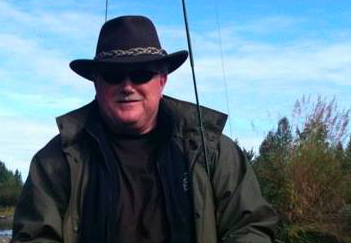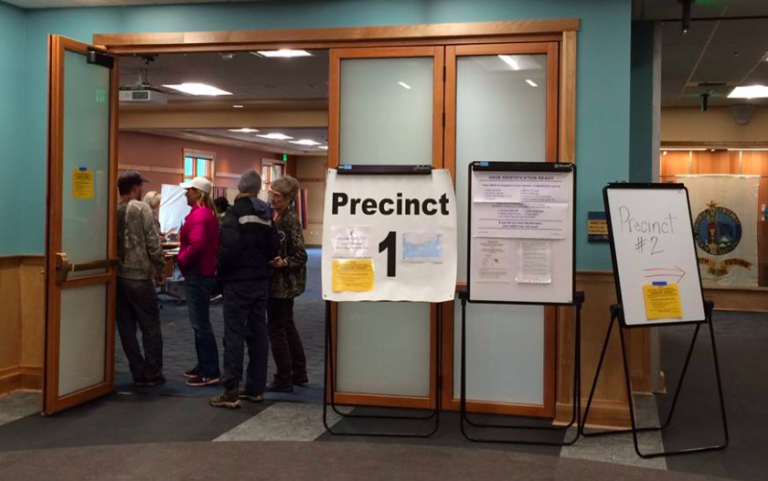UNRELEASED REPORT SHOWS MULTIPLE ERRORS
A report that is still under wraps shows multiple problems with the way the Ethan Berkowitz Administration launched a new payroll computer platform last year. The SAP system, as it’s called, was purchased under the Sullivan Administration and is a general accounting software program, but the payroll portion of it was not activated until last October.
Must Read Alaska caught a glimpse of the report, and found a number of errors, both human and otherwise, that have led to major problems in the municipality’s payroll, which are now costing tens of thousands of dollars in fines from union contracts:
- Poor system design: Interfaces appear more clunky than the legacy system PeopleSoft. In many cases, there is no same-day validation of time cards. Employees have to come back the next day to see if their time card is properly submitted.
- Poor transition planning: Insufficient engagement by supervisors. Nobody seems to own responsibility for accurate schedules, time types, time cards.
- No manual back-up process to ensure accurate data entry while the bugs were being worked out of the system.
- Inadequate supervision of time keeping processes at department level.
- Inadequate executive recognition of and response to accumulating liabilities and penalties.
- Apparent cover-up of problem during the mayoral election in April: Lack of disclosure to Assembly and public regarding accumulating financial liabilities.
[Read: Anchorage computer system flaws cost millions]
A DEEP DIVE INTO THE SECRET REPORT ON SAP PROBLEMS
Just a few of the problems that were identified in the rollout of the SAP accounting system at City Hall:
FINDING
Employees can’t view or update work schedules on time sheets. Work schedules are stored in Infotype 0007 and overridden by Infotype 2003 when schedule substitutions occur. This is not accessible for updates to the employees.
Because employees must approve their time entries, employees whose pay is directly affected by their work schedules should also be responsible for reviewing the accuracy of those work schedules.
In the current environment, the schedule that the employee works is often different from the one in Infotype 2003 or Infotype 0007.
IMPACT
The employee may be underpaid if the schedule doesn’t reflect time worked outside the scheduled start and end times. Conversely, the employee may be overpaid by being granted overtime pay if the time worked is outside the scheduled start or end times.
If the employee works from 7 am to 3:30 pm and the work schedule for the day in Infotype 0007 or 2003 is 8 am to 4:30 pm, the employee will earn one hour of overtime simply for having worked outside of the work schedule from 7 am to 8 am, even though the employee worked the regular eight hours for the day.
FINDING
Because overtime and shift differential pay for a large segment of the employee population depends on the schedule they work, work schedules for all conceivable work times must be built and maintained daily and in many cases added to Infotype 2003.
The dynamic nature of scheduling employees – especially seasonal employees — requires a continual effort to update Infotpe 2003 and sometimes to create and add new work schedules to the system as needed.
IMPACT
The amount of manual intervention required to accurately maintain work schedules in Infotype 2003 and to create new work schedules is time-consuming and when not done in a timely manner this results in employees being paid incorrectly.
FINDING
Occasionally the work schedule that an employee is assigned to in Telestaff is not the same as what is uploaded to SAP even after the interface program is run.
This problem occurs when changes are made to a schedule that was previously sent to SAP, causing a mismatch between Telestaff and SAP.
IMPACT
If employees are assigned the wrong work schedule in SAP, they may be under- or overpaid because of invalid overtime or shift differential calculations.
FINDING
There are no restrictions on the clocks to prevent employees from clocking in before their scheduled start or clocking out after their scheduled end times.
Some employees arriving a half hour prior to their scheduled start time can proceed to clock in. This situation is being handled manually by managers and supervisors via monitoring clock-in and clock-out time, and is being documented on time sheets and overtime overpayments.
IMPACT
Clock-in and clock-out times outside the scheduled start and stop times cause overpayments because of the resulting overtime hours. In general, these are small overpayments on a daily basis, but may accrue to a significant dollar amount over a long period of time.
FINDING
Employees must clock out and back in when leaving the premises. When AMEA employees clock out and back in for lunch for a time period that is not the same as the scheduled lunch break, the system deducts the lunch time from the work schedule and the clock out/in time from the daily elapsed time, resulting in lunch time being doubly deducted. This is a result of AMEA employees taking their lunch on a flexible schedule even when they are not allowed to.
IMPACT
Employee is underpaid for the scheduled lunch time. For example, if the scheduled lunch time is .5 hours, the payment for the day is shortened by .5 hour.
FINDING
Several cases where employee should have permanent or semi-permanent schedules are not assigned for the correct work schedule. The cause is most likely because employees may have changed jobs or assignments at the time of conversion from Kronos to SAP, where the employee is working in a new schedule but is assigned to the old schedule from Kronos.
FINDING
Holiday hours for APD exempt employees, some librarians, and some part-time employees for whom holiday cannot be determined due to variances in the schedules is incorrectly entered in Infotype 2012 by Payroll. This occurs on holidays and effects about 200 employees.
IMPACT
If there is a failure to enter the holiday in Infotype 2012, the employee does not receive the holiday pay. This is a case where manual entries that are not done or the time sheet effects how employees get paid.
FINDING
A review of payroll errors in 2018 show that over 60 percent resulted from:
- An employee worked a different assignment and did not enter the position on the time entry to get the assignment pay.
- Manual adjustment results in incorrect cashable end balance.
- A few employees thought their holiday pay was in error. It was correct but the employee didn’t understand the rule on holiday pay.
- Several errors were due to missing punches.
- Employees didn’t use person holiday before going to leave without pay
- Some entries didn’t make it into Telestaff on time.
- Manual leave adjustments were not done correctly.
IMPACT
Payroll errors caused by erroneous manual intervention or lack of knowledge about payroll rules.
FINDING
Some employees do not approve their time sheets because they cannot see the evaluated results like they were used to seeing them in Kronos. These time sheets may be incomplete at the time that managers release and approve them for the payroll process.
IMPACT
Employees are underpaid and in some cases accrue less leave hours than they should. In SAP, the time evaluation process is run daily at the end of the day during after-shift hours. The evaluated results are not available for a given day until the following ay, so it is not possible for employees to see the evaluated hours for the day at the end of the day. Employees are hesitant to approve their time sheets. Managers, to make sure employees are paid, go ahead and approve and release the time sheets, even though they may not be complete.
FINDING
Payroll errors are occurring as a result of mapping errors when converting records from the Telestaff output file to the SAP input file. An XML file containing work schedule data, regular and exception hours, for example overtime and other premiums, are extracted from Telestaff on a daily basis. The regular and exception hours are assigned codes used by Telestaff to indicate if the hours are regular time, overtime, etc. The XML file is converted to a text file, which is uploaded to SAP.
IMPACT
For missing mapping codes, the hours are “errored-out,” to be fixed by Payroll. If the fix isn’t done in a timely manner, employees may be underpaid.
FINDING
Employee 401K/ 457 contributions are delayed as compared to the legacy system. Time to process payroll is taking until Wednesday. In Peoplesoft, this was completed on Monday, allowing for paychecks and 401Ks to be issued by Friday. This is a temporary condition and will be resolved over time, when time/payroll issues stabilized and the team becomes more experienced.
IMPACT
Employee contributions are delayed but the eventual deposit is still made within the federally regulated timeline. Depending on the 401K/457 plan, however, this could cost a lost investment opportunity.
FINDINGS
Executive salary is occasionally creating rounding issues during payroll processing. This occurs sometimes when the salary is broken down to its hourly rate in scenarios where the salary has splits. Further, payment wage type 1002 is different from the posting account wage type and therefore processing is treated differently.
IMPACT
Two different wage types are being used — the executive salary payment wage type and the posting wage type. These wage types behave differently in payroll processing and this causes rounding discrepancies.
UNDERPAYMENTS
Hourly employees’ time is not entered or approved prior to the payroll cutoff period or the employee does not clock in or clock out correctly. For example, If the employee forgets to clock back in after returning from lunch or forgets to clock in altogether, the time sheet will be incorrect.
IMPACT
As a result, the employee is underpaid. The payroll department must track down the clock-in and clock-out transactions via reports, time statements, to determine the cause of the underpayment.
To correct the underpayment issue, the Payroll Department enters this missing time as an unapproved absence. The use of this payment code will cause multiple retroactive transactions as the transactions are entered per the effective date.
RECOMMENDATION
A process will need to be put in place immediately to address underpayments. One option is as soon as the underpayment has been validated, the employees pay should be made whole.
Pros: The employee will receive monies owed to them in a timely manner, to alleviate financial hardship “well as extending an appearance of good will toward the employee.
Cons: It’s important to validate the missing time or it could result in an overpayment of monies not due to the employee.
FINDING
There is a dispute between how the system has paid the employee and how the employee believes that the collective bargaining agreement defines how the employee should be paid. Per the specs provided the system has been built correctly according to the collective bargaining agreement definition.
IMPACT
Employee or collective bargaining unit disputes the interpretation of the collective bargaining agreement, claiming an underpayment.
RECOMMENDATION
A process will need to be in place to immediately address disputed underpayments and subsequent steps should be defined once the dispute has been resolved.
Pros: The employees will receive the money owed to them in timely manner while the investigation is ongoing.
Cons: It’s important to research and validate the missing time, or it could result in an overpayment of monies not due.
[Read some history: SAP offers Anchorage 85 percent discount on ERP software]











